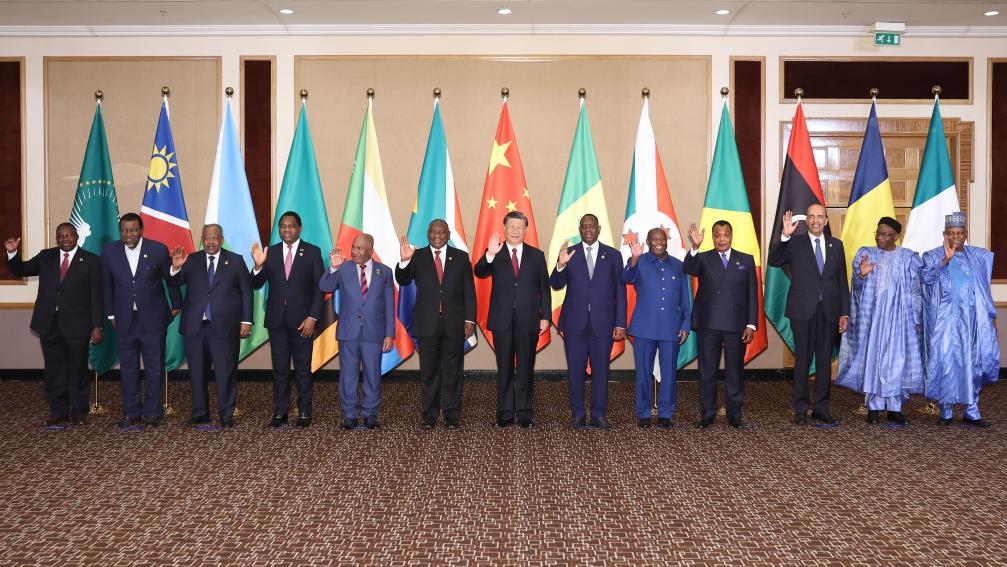Chinese President Xi Jinping’s tour to South Africa to attend the BRICS summit and pay a state visit to South Africa is of strategic significance as it has drawn roadmap for development of China-African relations in the new era, gathered new consensus on South-South cooperation and added positive energy for global peace and development, Chinese Foreign Minister Wang Yi said on Friday.
The high-profile visit reflected the significant progress made by emerging markets and developing countries in promoting the building of a just and equitable global governance system, Wang, also a member of the Political Bureau of the Communist Party of China Central Committee, said in a conclusion statement addressing Xi’s visit to the African continent on Friday night.
Xi returned to China after concluding his 10th visit to the African continent between August 21 and 24, during which he attended the 15th BRICS Summit and completed a state visit to South Africa.
Wang Yi, member of the Political Bureau of the Communist Party of China Central Committee and foreign minister, briefs the media on Chinese President Xi Jinping’s South Africa trip. Photo:Xinhua
Wang said Xi’s visit to South Africa has yielded fruitful results. The two sides issued a joint statement, and the two heads of state witnessed the signing of a number of bilateral documents on jointly building the Belt and Road Initiative, new energy and electricity, agricultural products, special economic zones and industrial parks, blue economy, scientific and technological innovation, higher education among other fields.
Wang said it was particularly worth emphasizing that the visit highlighted the important consensus and common interests of China and South Africa on major international issues.
The strategic mutual trust between China and South Africa has reached new heights, and China-South Africa relations have gone beyond a bilateral scope and assumed increasing global significance, Wang noted.
Wang said the decision to invite Saudi Arabia, Egypt, the United Arab Emirates, Argentina, Iran and Ethiopia to join BRICS as new members was the biggest highlight of the 15th BRICS Summit as well as a historic moment in the development of the BRICS.
Expansion of the BRICS echoes the common will of developing countries, and will push forward the momentum of multipolarization in the world and the democratization of international relations. It will contribute to makingthe global political and economic governance system more just and equitable, and increase the representation and the voice of emerging markets and developing countries in international affairs, Wang said in the conclusion statement.
Wang noted President Xi has pointed out with foresight and insight that the BRICS should not become a closed or exclusive bloc but an open and inclusive platform, and that the inclusion of new members and the pooling of new forces meets the practical needs of BRICS development and serves the common interests of BRICS countries.
The expansion of BRICS resolutely counters smears from countries whom cling to the Cold War mentality, badmouth BRICS cooperation and do everything possible to divide the group. It also serves to boost confidence across the Global South to unite and strengthen themselves, he said.
The vigorous development of the BRICS mechanism is an expansion of the platform for South-South cooperation, a strengthening force for safeguarding peace, an expansion of the world’s front for justice, and another important milestone in solidarity and cooperation among developing countries, Wang added.
President Xi once again set foot on the African continent nearly five years after his most recent visit and reaffirmed the commitment to walk side by side with the continent and be a firm supporter of Africa’s path to modernization.
The three initiatives, proposed by the Chinese president at the China-Africa Leaders’ Dialogue – the Initiative on Supporting Africa’s Industrialization, the Plan for China Supporting Africa’s Agricultural Modernization and the Plan for China-Africa Cooperation on Talent Development – cover areas that Africa is addressing on its path to modernization, and is also a vivid manifestation of China’s support for Africa’s development, Wang said.
Facts have proved and will continue to prove that no matter how the international landscape may be adjusted, the brotherly friendship between China and Africa based on sincerity, friendship and equality will not change, the Chinese Foreign Minister said.
(Global Times)




